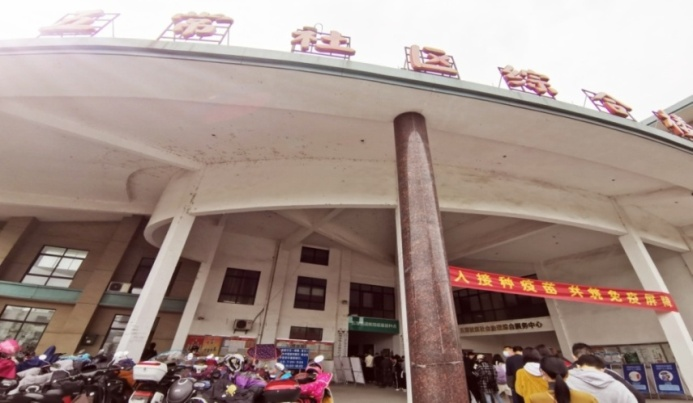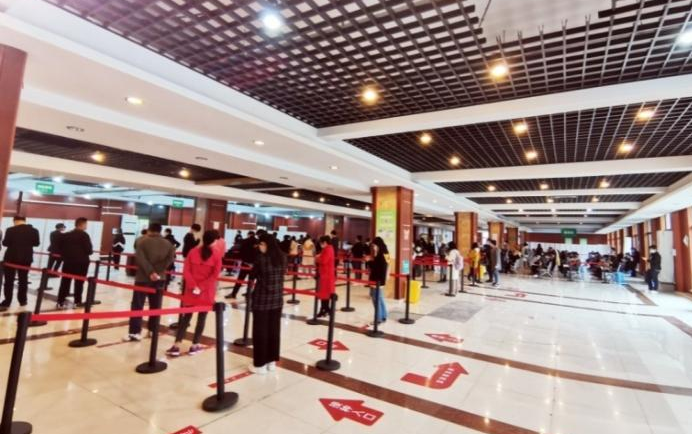Since the COVID-19 pandemic has raged around the whole world, the number of confirmed cases worldwide has reached more than 128 million, and the number of deaths is more than 2.8 million till 5:39 pm CEST on March 31, according to WHO. COVID-19 has become a global public crisis that has seriously threatened human life.
Across the world, we can see that China has achieved outstanding success in epidemic control through effective governance, and most cities have entered the post-epidemic era. Resumption of production has proceeded smoothly, and social life has gradually returned back to the usual track. In the first two months of 2021, almost all economic indicators have been restored and shown strong momentum. According to the National Bureau of Statistics, the economy may experience year-on-year growth in the first quarter, even a sharp rebound.
Domestically and regionally at the same time, Hangzhou, the capital city of Zhejiang Province, known for the world’s cultural heritage of West Lake and being the host city of the G20 Summit, has boosted the digital economy since the 21st century. At the beginning of the COVID-19 pandemic, Hangzhou has been committed to promoting scientific prevention and urban governance through digital means. For example, the 'health code' was initially adopted by Hangzhou and was gradually applied to the whole nation.
Yuhang, the biggest administration district in Hangzhou, known for Liangzhu civilization and the multinational company Alibaba, is carrying out COVID-19 vaccination work recently. Since March 10, Yuhang has launched the free inoculation of vaccines for people over 18 years old. To provide nearby citizens with convenient services, Yuhang has set up more than 40 vaccination sites. As of March 31, a total number of 144 thousand had been vaccinated. According to the plan, Yuhang will complete the vaccination of 760 thousand by the end of May and 1.51 million by the end of 2021.
A few days ago, the author made a vaccination appointment through a government service APP named Zheliban after receiving the community's notice. On April 2, the author arrived at the vaccination place Wuchang community at about 9 am.

People line up to take a number outside a vaccination spot in Yuhang District, Hangzhou on April 2, 2021.
(Photo/Zhu Wenjing)
After waiting in queue for about 30 minutes, the author got a number and entered the waiting area. People with the corresponding numbers on the spot called by the security staff could enter a larger vaccination area and wait for the vaccination.
Several rows of vaccination workbench were set in the vaccination area, with a one-meter distance between each person in a row. Medical staff will propose some questions about physical conditions to judge whether it is suitable to vaccinate. The medical staff will print out a vaccination certificate based on the appointment information in the Zheliban APP, once the person is suitable for vaccination Then people can receive the vaccination from the other medical staff nearby behind a curtain.
After the vaccine has been injected, the people must stay in the observation area for 30 minutes to see whether there are any adverse reactions. Then people can get a 'Stay for 30 minutes' stamped on the vaccination certificate and leave.
The entire vaccination process was orderly, with a high degree of public cooperation. Both the security staff and medical staff was very kind and professional.

People line up to get the vaccine in the vaccination area, Hangzhou, April 2, 2021.
(Photo/Zhu Wenjing)
With the largest population in the world, China faces many challenges in the COVID-19 epidemic. However, just as an old saying goes, 'challenges and opportunities always coexist,' there are significant development opportunities behind the challenge.
Among them, applying digital technology to promote digital governance is an integral part of urban governance. The organization and implementation of large-scale vaccination activities is a microcosm of urban governance, reflecting the improvement of China's urban governance capabilities. In the digital economy era, more good experiences and practices in China's urban governance will provide a valuable global governance reference.
The author is an assistant research fellow at the Hangzhou International Urbanology Research Center (Zhejiang Urban Governance Study Center).
(Edited by Ye Ke)